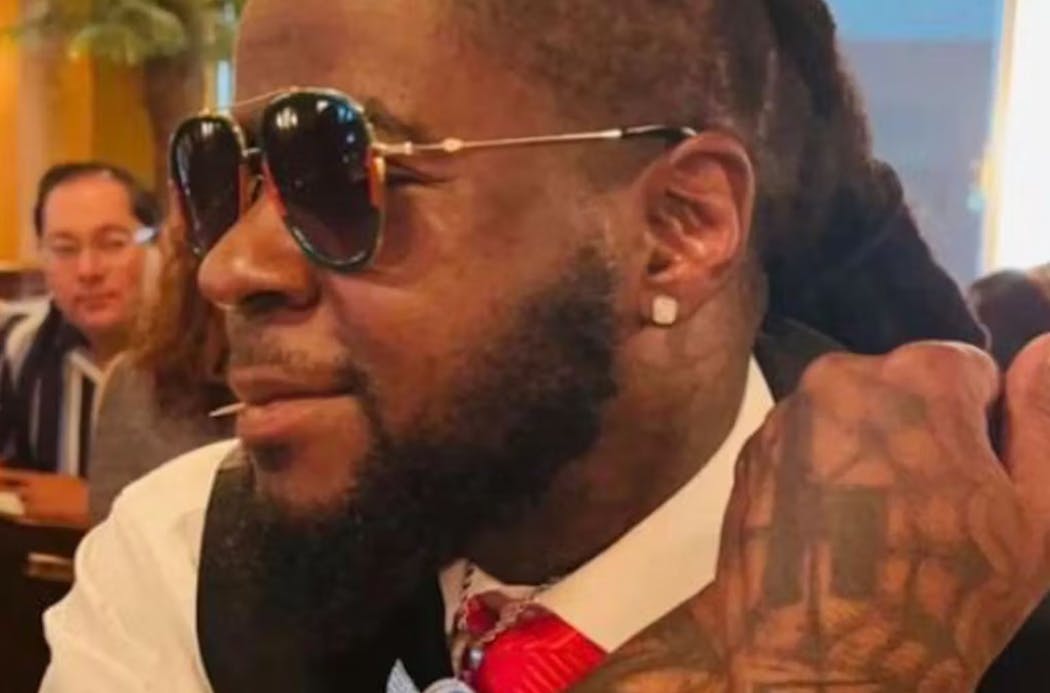A report issued by the law firm that Hennepin County Attorney Mary Moriarty hired to help prosecute a Minnesota state trooper for murder in the shooting of motorist Ricky Cobb II detailed little evidence to counter defense experts' claims that the shooting was justified.
Moriarty hired the Washington, D.C.-based law firm Steptoe LLP as outside counsel in April and its 858-page "Special Prosecutor's Report and Recommendations in State v. Ryan Patrick Londregan" was submitted in early June around the time Moriarty dropped second-degree murder charges against Londregan. Steptoe billed Hennepin County $578,321 for 733 hours of work.
The report details how Londregan's defense was building a use-of-force argument through statements and interviews from the other two troopers on the scene, Brett Seide and Garrett Erickson, along with senior members of the State Patrol who had trained Londregan and were willing to testify that his July 31, 2023, shooting of Cobb as he attempted to flee a traffic stop followed department standards. It also shows how the prosecution's own use-of-force expert ultimately determined that Londregan was likely justified in his decisionmaking because he feared for the safety of Seide, who had half of his body in the driver's side window when Cobb shifted his car into drive.
Many of those witnesses also went before a grand jury. That testimony was redacted from the report, though the Hennepin County Attorney's Office argued unsuccessfully in court that it should be released.
All of that information was available to Moriarty before she hired Steptoe and before a hearing on April 29 where Londregan's attorney, Chris Madel, said they would argue that Londregan feared Cobb was reaching for Londregan's gun.
The Steptoe report zeroes in on that piece of information as a turning point in the ability to successfully prosecute Londregan. Moriarty told the Star Tribune in June it changed her belief that she should continue pursuing the case.
A spokesperson for the Hennepin County Attorney's Office said, "In a community where police violence has impacted so many, it would have been unfathomable for us to simply decide to drop a case that at the time we believed we could prove beyond a reasonable doubt. Eventually, that calculus changed, and that is the point at which we dismissed the charges."
Madel said in an interview this week the notion that Moriarty was surprised by any element of their self-defense argument rang hollow.
"When you kill somebody and there is no dispute that you're the one who killed them, you have to find a justification or you're going to go to prison. That's it," Madel said. "For her to say, 'Well, I had no idea.' Well, what did she expect them to do? Come in and say, 'Put me in cuffs, I killed him for fun?'"
The report shows that for the duration of the investigation there was little evidence that any experts were willing to say Londregan's use of force was not justified. And several witnesses for the defense had already given sworn declarations that Londregan was justified to use deadly force once Cobb put the car in drive with Seide's upper body inside the driver's side window.
The report also makes clear that from the beginning the defense was going to present an argument that Londregan believed his life and Seide's life were in danger when Cobb put the car in drive.
Seide gave a statement to the Minnesota Bureau of Criminal Apprehension eight days after the shooting where he used language clearly meant to justify the use of force:
"As the vehicle increased speed I tried run [sic] alongside so as not to fall and get run over. At that time, I knew that Trooper Londregan and I were in danger of being run over by Cobb's car, being hit by an oncoming car on the highway, or otherwise being dragged away at a high rate of speed."
Erickson's statement was turned in 16 days after the shooting and followed a similar argument:
"Due to the fact that Trooper Seide was inside the vehicle, I was concerned that Trooper Seide was in an extremely vulnerable position. I feared for Trooper Seide's life because he could fall out and be run over, or that Trooper Seide would be trapped in the vehicle for an unknown amount of time traveling down the freeway."
The Hennepin County Attorney's Office retained Jeff Noble as a consulting use-of-force expert. Noble, who had been a deputy chief of police in Irvine and Westminster, Calif., was the use-of-force expert witness in Derek Chauvin's criminal trial for the murder of George Floyd.
Noble never gave prosecutors a final opinion on Londregan's use of force, because he wanted more information, but he did say that Londregan was "authorized to respond reasonably to the danger to trooper Seide."
It wasn't until Madel issued a subpoena on April 9, that Noble produced a "draft report" which had his preliminary opinion that, "A reasonable police officer in Trooper Londregan's position may have believed that Trooper Seide was at imminent threat of death or serious bodily injury at the moment that Trooper Londregan used deadly force."
Several members of the State Patrol reached the same conclusion, including Sgt. Jason Halvorson, who instructed Londregan in use of force during his state trooper academy training in 2021 and has served 10 years as the State Patrol's use of force expert.
When Moriarty charged Londregan with second-degree murder, first-degree assault and second-degree manslaughter in January, she quoted an interview Halvorson gave with the BCA in the statement of probable cause. In that interview, Halvorson said that a trooper pointing a gun at a driver wouldn't stop a driver from fleeing the area and could cause them to flee.
Halvorson said those statements were taken out of context and the Steptoe report contains the 37-page transcript of the interview. It shows Halvorson speaking mostly about Minnesota State Patrol policies amid dozens of hypothetical law enforcement situations over a lengthy interview that at times became contentious. He does not offer his opinion on Londregan's use of force.
The first sworn declaration the defense gave in the case came from Halvorson on March 20 when he said his opinion was that Londregan's use of force was justified.
The defense introduced additional sworn declarations from State Patrol leadership including: Lt. Jonathan Wenzel, a firearms instructor and coordinator, who instructed Londregan at academy; Sgt. Troy Morrell, the emergency vehicle operations course and vehicle contracts coordinator, who instructed Londregan at academy; and Maj. Christopher Erickson, who is the statewide on-call major and has been with the State Patrol for 25 years.
All believed Londregan was justified in his use of force.
The report's heaviest criticism of Londregan, Seide and Garrett Erickson was their approach before the fatal shooting. The troopers hadn't discussed any plan for what to do if Cobb was uncooperative or who should approach him. They also never discussed using stop sticks on the rear tires, which could have prevented Cobb from driving away without the troopers needing to enter the car.
It also included several recommendations to help investigations into deadly use of force by law enforcement in the future — namely that the Department of Public Safety ensure that state law enforcement personnel promptly cooperate with BCA investigators and that the State Patrol should require officers who witness use of force provide voluntary interviews within 48 hours of the event.
Londregan never agreed to be interviewed by the BCA or prosecutors about shooting Cobb.
The Steptoe report also states that, "Approximately 37 MSP troopers either refused to be interviewed or did not reply to the BCA's interview requests." The BCA declined to comment on the report.
State Patrol Col. Christina Bogojevic said in a statement that, "The Minnesota State Patrol disagrees with the report released by the Hennepin County Attorney's Office insinuating a lack of cooperation by our troopers. Every individual being questioned as a witness or otherwise in any criminal investigation has a right to retain counsel and seek legal advice. We're extremely disappointed in the inaccuracies of current and previous statements made by the Hennepin County Attorney."
Other recommendations to the State Patrol included greater emphasis on de-escalation and better training on extracting suspects from vehicles.
The report states, as Moriarty has, that Cobb should be alive today. From the moment Londregan opened Cobb's passenger door to when he drew his service weapon and fired twice, seven seconds passed.
Supreme Court allows DOGE team to access Social Security systems with data on millions of Americans

Thompson found guilty of murder in car crash that killed 5 young women

University of Minnesota is putting its golf course up for sale
Feeding Our Future probe: Apple Valley woman charged with defrauding food program of $1.4 million




